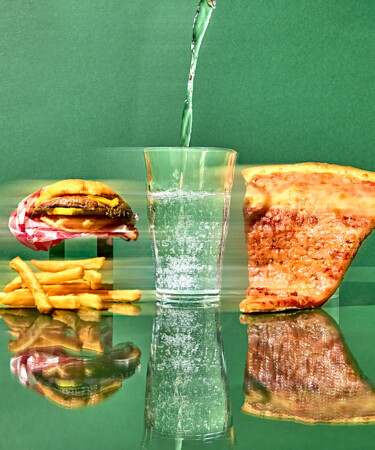Hangovers, at their most basic, are exactly what they sound like: the leftover effects of the previous night’s shenanigans carrying over, or hanging over, into the next morning. For the 75 percent of us who aren’t lucky enough to be somewhat resistant to them, hangovers are a very real reminder not to overdo it, and anyone who’s roughed their way through one will tell you it’s the pits. Still, that’s never stopped people from looking for a way to avoid the inevitable or lessen their pain. That’s why many drinkers swear by homegrown remedies and preventive measures designed to minimize the fog and grog. Staying hydrated, enjoying beer before liquor, and chasing a wild night with a greasy breakfast sandwich are among them.
But the question remains: Do any of these hangover cures actually work? To get the science behind them, we consulted with Christina Cariello, a physician assistant at the Hospital for Special Surgery in NYC.
What causes hangovers?
There are a few factors at play when we develop a hangover, says Cariello, which include dehydration and the depletion of vitamins and electrolytes.
Alcohol is a diuretic, which means it makes us urinate more frequently, thus releasing water and other essential nutrients. This occurs because alcohol inhibits our body’s production of the hormone vasopressin, which affects our blood pressure regulation, kidney functions, and, ultimately, how often we make trips to the restroom.
“When we consume alcohol, our liver has to work to metabolize it,” explains Cariello. “And as we age, we produce fewer of the enzymes necessary to metabolize alcohol as quickly, leaving us with that hangover feeling the next day.”
Another factor that plays into hangovers are congeners. They’re minor compounds that are produced during the alcohol fermentation process, and include a variety of chemicals like methanol, acetaldehyde, and tannins. Our bodies interpret these chemicals as toxins and send our kidneys into overdrive to flush them out, further sending us into dehydration. In general, the darker the booze, the higher the level of congeners in the liquid, so red wine, brandy, and dark rum will have more congeners than vodka and light beer.
“It’s believed that tannins work to vasodilate our blood vessels,” says Cariello, “meaning it allows our blood vessels to relax and more blood to pump through, which can actually cause headaches.”
Does beer before liquor actually make you sicker?
Many of us are familiar with that old, sing-songy rule of thumb. Common sense would lead us to believe that it’s true — the assumption being that drinking hard liquor first “primes” the stomach for lower-ABV beer and keeps nausea at bay. Despite this theory being so widespread, the science just doesn’t back it up.
“There is no valid research to back the age-old quote,” Cariello says. “Any type of alcohol is absorbed through your bloodstream as soon as it reaches your stomach, so the cumulative alcohol from the night before will all be absorbed before the hangover takes effect.” In short, booze is booze, and if you have too much, you’re probably going to feel sick.
Does Eating Greasy Foods Help Fix a Hangover?
For many, it’s standard practice to refuel with a heavy breakfast after a long, boozy night. But while an egg and cheese sandwich might hit the spot in the moment, it may actually end up making it even harder for your body to recover.
“Eating greasy, fatty foods when a hangover has already set in does not help a hangover, and can actually make it worse by irritating an already disrupted GI tract,” Cariello says. Instead, Cariello recommends popping some ibuprofen to reduce inflammation.
What Are the Best Ways to Minimize a Hangover?
There are three solid methods that can set you up for a less painful morning: eating before you drink, hydrating, and ingesting vitamins and electrolytes before and after imbibing.
Eat Enough Beforehand
Having some food in your stomach can help your body handle booze better overall.
“If there is already food in your stomach before drinking, gastric emptying is delayed and digestive juices and enzymes are already present,” Carroello explains. “[This helps] mix the food and alcohol and pass it on to your intestines to absorb alcohol at a slower, steadier rate. If you drink on an empty stomach, alcohol will pass right through to the intestines without anything to dilute it and hit you harder, resulting in a rougher morning.”
As far as the best foods to eat before drinking, you’ll want to stick to easy-to-digest carbs, sugars, and low-fiber foods. “These things are easy on the digestive tract,” Cariello says. She recommends bananas, rice, applesauce, and toast to soften the booze’s blow.
Hydrate
Though it often slips our minds when we have cocktails in hand, staying hydrated throughout the day and night is crucial for staving off a hangover.
“It’s important to hydrate before, during, and after alcohol consumption to prevent hangover effects,” Cariello says. “Hydrating with something rich in electrolytes like Gatorade will help to replenish your body.” She also stresses the importance of drinking a ton of water right before going to sleep to help the body restabilize overnight.
Take Your Vitamins
Replenishing the body’s vitamins and minerals can be the difference between moving a little slower the next morning and spending the entire day languishing in bed.
“The best way to avoid a hangover if you know you’ll be consuming alcohol is by replenishing your body with the same vitamins and minerals you know it will be depleted of after alcohol consumption,” Cariello says. “There are many different supplements on the market, but only a few that are actually backed by science and formulated by doctors, such as H-Proof.”
Of course, there’s no miracle cure or way to prevent hangovers other than to abstain from drinking altogether. But if you follow the tips above, you’ll feel slightly less like the walking dead after a night of debauchery. Pace yourself, stay hydrated, and maybe pop a Flinstone vitamin.
